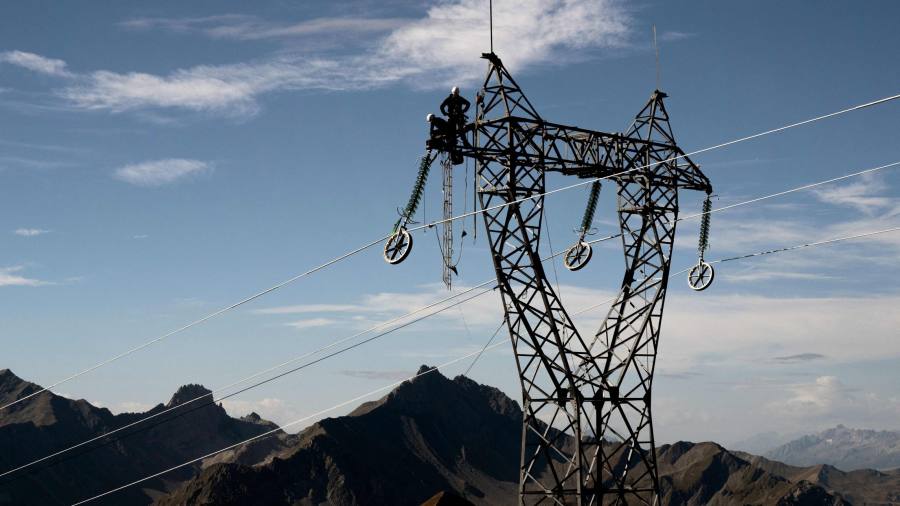
The head of the French national grid has played down the risk of a breakdown in electricity flows and sweeping cuts to energy exports across Europe this winter, as the continent works to stave off power cuts.
Xavier Piechaczyk said high gas storage levels, built up to bolster non-Russian reserves, had boosted power production capacity across the region, which should keep electricity supplies flowing as the system comes under strain after a warm autumn.
However, the RTE chief acknowledged that falling temperatures and delays in repairing outages at France’s fleet of nuclear power plants could still combine to trigger shortages and consequent power cuts, including in France.
That risk that would be exacerbated if imports declined sharply, a scenario Piechaczyk said was “very, very improbable”.
“The only thing that could threaten imports [to France], would be if our neighbouring countries produced less electricity from gas,” Piechaczyk said in an interview.
Countries across Europe are struggling to address strains in their electricity networks as the region weans itself off Russian gas and are counting on each other to supply electricity at peak times.
France, normally a major power exporter, has become a net importer this year after a record number of outages at its nuclear plants, owing to maintenance work and unexpected corrosion problems, or cracking in the pipes of safety injection systems, that required repair.
Surges in demand from France to Germany and Britain usually occur at different times of day and countries have little incentive to cut each other off to prioritise their home market, Piechaczyk said, as they all need supplies from elsewhere. Grid operators across the region were working together to ensure fluid exchanges, he added.
“No one is envisaging any reduction in their [electricity] interconnection capacity,” Piechaczyk said.
France signed a deal with Germany last month to increase its imports of electricity, in exchange for Paris sending more gas to Berlin. That required Germany to increase the portion of interconnection capacity it uses for exports from about 30 per cent to 41 per cent, weeks earlier than it had planned, one sign of solidarity in the region, Piechaczyk said.
Britain has particularly relied on French nuclear power imports in recent years but has now become an exporter of electricity to France, putting strains on its own supplies. Britain and France have been urging households and businesses to cut their electricity usage to help reduce the threat of temporary blackouts.
Germany’s biggest grid operator, meanwhile, warned in October that its own exports to other countries may have to be curtailed if there were shortages.
By next year, repairs to France’s nuclear plants should allow the country to go back to being a net exporter to the rest of Europe, Piechaczyk said, providing some succour to the region as concerns mount over gas stocks for the winter of 2023-24.
Grid operators and governments are still bracing themselves for possible targeted power cuts in the short term, however, especially if January and February are colder than expected, imports falter and the restart of French nuclear plants falls behind schedule.
“Is there a risk [of power cuts]? Yes. Will there be power cuts for sure? No,” Piechaczyk said, adding that they would in any case account for a fraction of the electricity supply. “We wouldn’t be cutting 40, 50 or 70 per cent of the country’s electricity.”
France has been preparing by designating priority consumers such as hospitals that would be spared power cuts. Targeted areas will be warned in advance, with people advised to avoid taking lifts, while supermarkets would be among those affected.
But this has also led to wrangling with telecoms companies, for example, over the hit to telephone infrastructure. France’s biggest operator Orange warned this week that emergency calls might be hampered as a result. Local authorities are working on plans to shut schools for part of the day or divert traffic if roadside lighting is affected.
French government spokesman Olivier Véran conceded that even operations such as withdrawing cash could be temporarily affected were there to be targeted cuts in January, but dismissed the risk of major chaos.
“We’re not in a disaster movie,” Véran told BFM TV on Thursday.